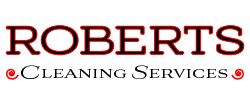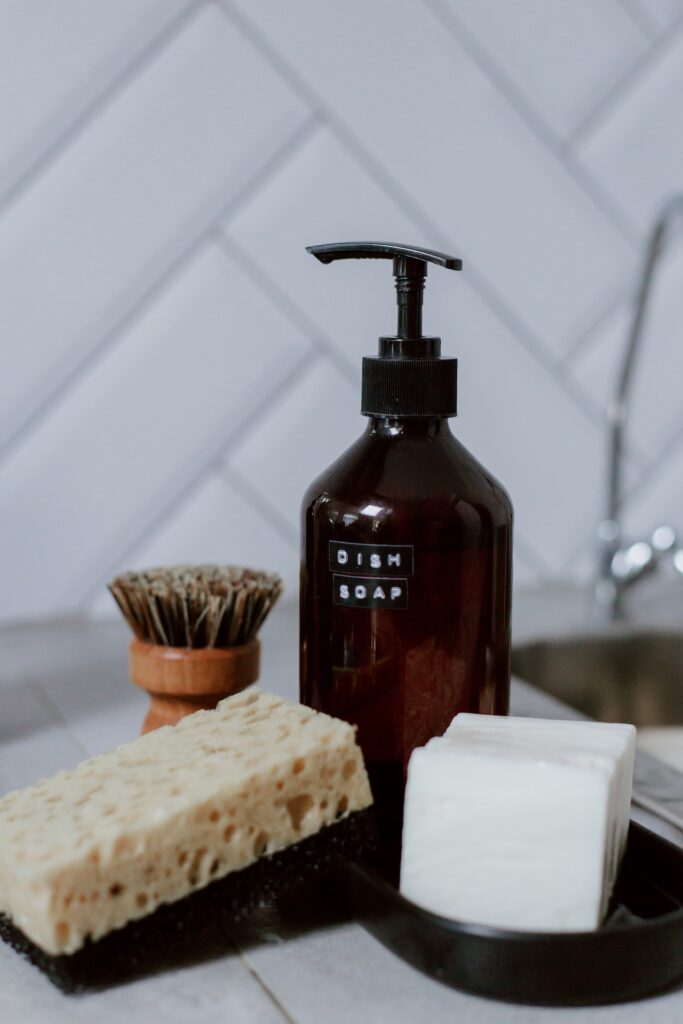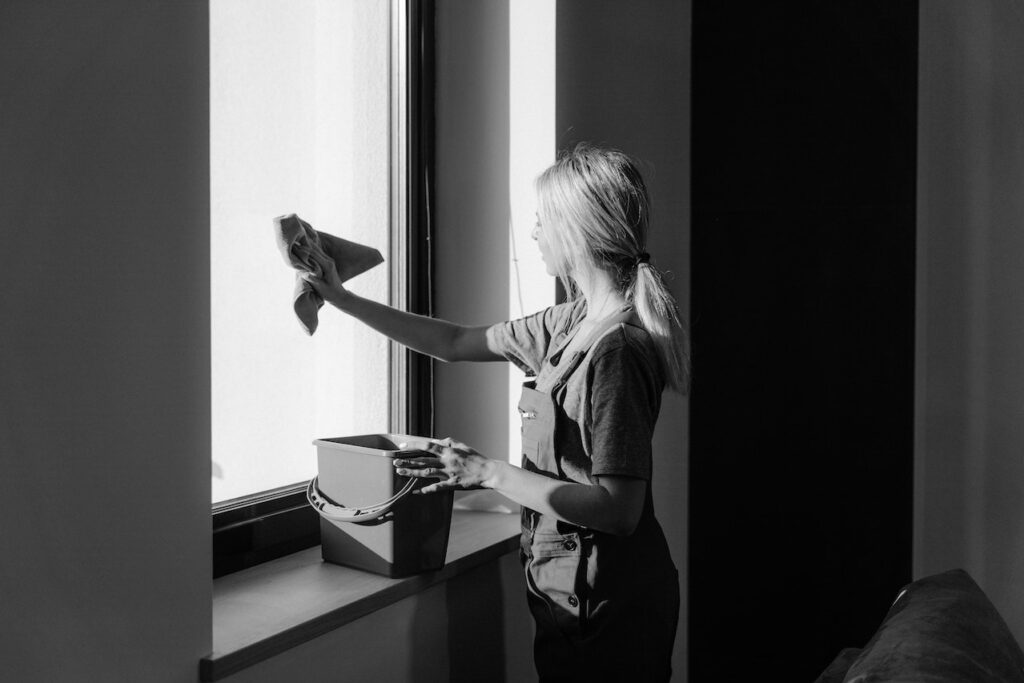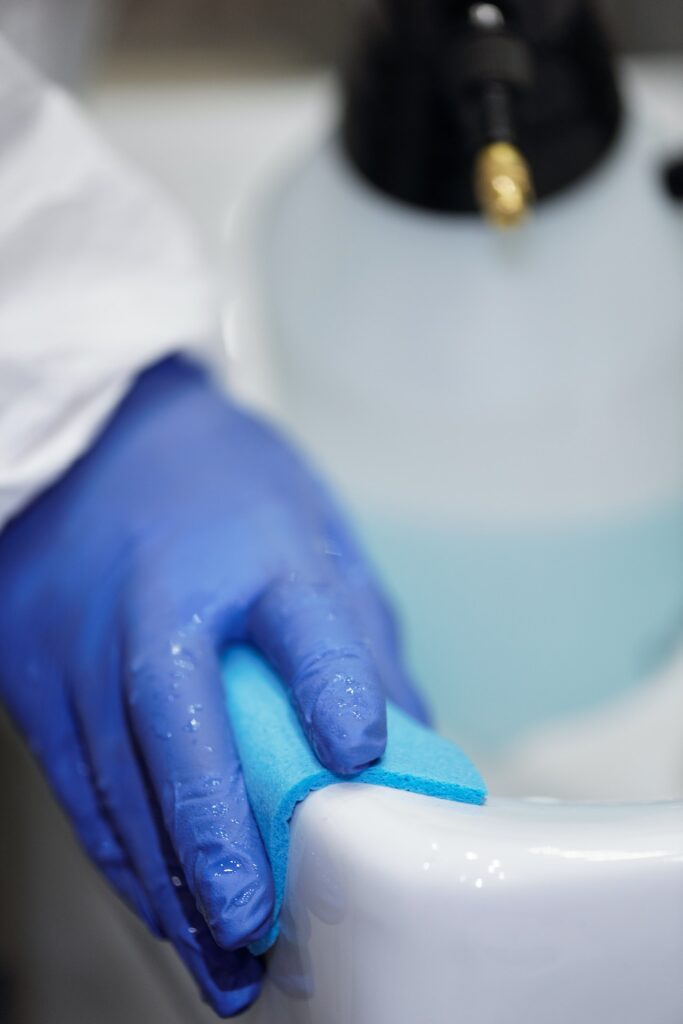
Some tenants are great. They don’t just pay the rent on time, but they also keep your rental property nice and tidy. They like to have nice surroundings and to live in a clean house, even if they don’t own it. They don’t try spray-painting slogans on the walls. When the time comes for them to move to a new place, they will (a) tidy the place properly, either by doing it themselves or by hiring an end of tenancy cleaning company; and (b) break your heart because finding others like them will be hard. They will have touched the garden with a few cheap and cheerful annuals if you’re lucky.
Other tenants… aren’t like this. They’re messy. And I don’t just mean that they are a bit slack about dusting and cobwebs and leave piles of washing unsorted on the sofa and a stack of unwashed dishes on the sink. I’m talking about the really messy ones. The ones who let the rubbish bins overflow onto the floor don’t mind mould growing in the bathroom and don’t seem to realise that for a place to stay fit to live in, you need to clean up the vomit and wee after a particularly hard night on the sauce. They seem to have the mentality that, as they don’t own it, they don’t have to look after it. (No, I don’t get this sort of thinking either.) These are tenants that you’re only too glad to see the back of when they leave – or when you finally get grounds to boot them out of the rental. Honestly, you might be left with the clean-up after this type of tenant, but this may seem like a relief. At least dirt cleans up eventually, and they didn’t burn the carpet or punch holes in the walls – oh, wait; they did.
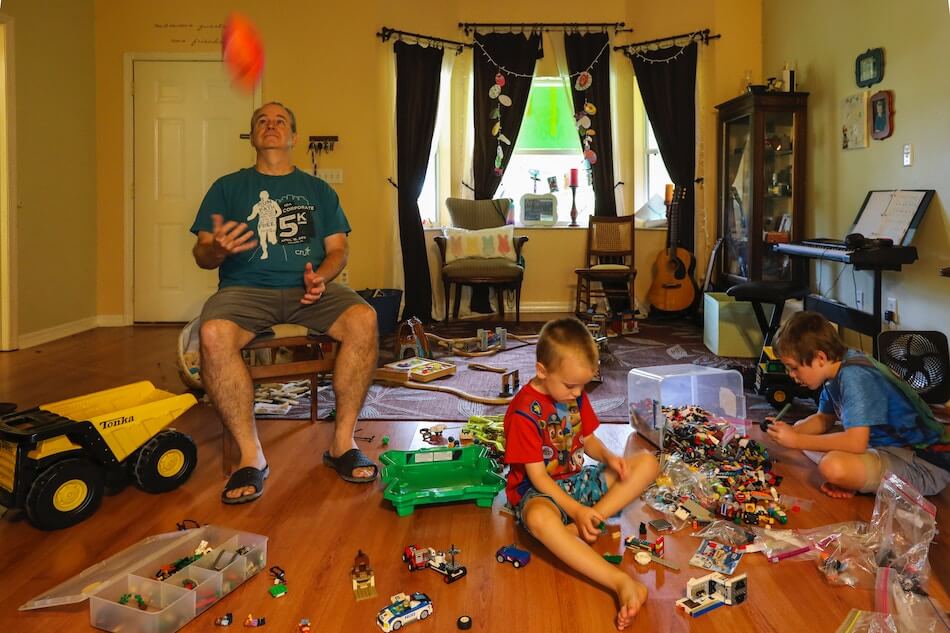
Ouch. It’s not nice and really not what you hoped for when you got into the rental property game. If it’s happened to you once, you don’t want to have it happen again, and you’re left looking at the mess and wondering what to do about it. What right do you have as a landlord? Can you insist that your tenants keep the place clean? When they leave, can you ask them to get the place cleaned by a reputable end of lease cleaning service? Can you use the deposit money to pay for a professional cleaning company?
After checking out a few little legal matters, I’ve got some bad and good news. In time-honoured tradition, let’s start with the bad news first and get it over and done with.
What Landlords Can’t Demand In Terms Of Cleaning
The first piece of bad news is that legally, people are allowed to live how they like, and if they want to live in a mess, they have a legal right to do so. Yes, even if where they live is in the rental property they own. This means that although tenants are responsible for cleaning the rental property while they live in it, they’re not legally bound to do so. In other words, you don’t have to arrange for a domestic cleaning service for the house or come in personally with the vacuum cleaner and the dusters while they’re living in it. They can’t expect you to do this – any cleaning that needs to be done is their job. If they want to live like a bunch of slobs, they can.
But what about property inspections? Can’t you expect them to have the place tidy for those?

Unfortunately, even during routine property inspections, you can’t tell the tenants to mop the floors and wash the windows. Once again, they’ve got a right to live like pigs if they want. However, if any of the mess they are making is likely to cause damage to the house – the food rubbish that’s enticing rats that chew the walls, the mould that’s starting to attack the wood, anything that’s attracting flies and maggots that might start eating into the carpet. You can ask them to deal with that sort of thing. In fact, if you discover that they have done something (or neglected to do something, more likely), meaning that “The property has deteriorated due to neglect by the tenant”, this is grounds for eviction if they don’t do something about it after fair warning (see http://www.legislation.gov.uk/ukpga/1988/50/schedule/2).

The second item of bad news is that you also can’t make it part of the rental contract that your tenants have to call in a professional end of tenancy cleaner to do the final moving out clean. In fact, if this is a condition, you could get fined big time. Yes, you can ask a tenant to leave the property clean and tidy, but you can’t make them get a professional to do it. Although I work as a professional cleaner myself, I can understand this. There are so many grey areas (figuratively but hopefully not literally). After all, your tenant’s brother might be a professional janitor, so when he comes to help with the moving out cleaning, he’ll bring his professional skills, although there won’t be a receipt involved. And some tenants who are exceptionally hard-working and motivated can do a good job of their own cleaning.
The Good News About End Of Tenancy Cleaning
Now for the good news. You can and should insist that the tenants leave the property clean and tidy. Here, we must note that clean and tidy isn’t the same as “show home perfect” or “just like new”. You can expect that there will be some signs of wear and tear around the place – worn carpets, faded curtains, crumbling grout, and slightly peeling wallpaper – but the place can still be clean despite the signs of age.
The Tenants from Hades

What’s more, if you’ve had the Tenants From Hades who left the place looking unfit for pigs to live in, let alone humans, then you are fully entitled to use some or even all of the deposit money to hire a team of professional cleaners to take care of the tidy-up for you. In fact, in the case of really bad tenants – the sort with the cat wee in the carpet and the piles of rubbish in the corridor that have stained the walls – you probably should get a professional to do it. It can be too infuriating and heartbreaking to do the cleaning yourself. It’s also very difficult to get this sort of mess up to a proper standard of hygiene and cleanliness. However, a professional end of tenancy cleaning team can handle this. Trust me, we’ve seen it all before!
Joint Final Inspection
It’s always best to do a final inspection of the property with your soon-to-be-ex tenants so if there’s anything that the tenants have overlooked (easily done!) or that isn’t up to standard, then you can give the tenants a chance to take care of it themselves and get all of their deposit money back rather than you holding onto the deposit money and getting a cleaner to deal with it, sometimes with hard feelings all around. This final inspection also helps overcome issues when you and your tenants have different ideas about what “clean” actually means, as different people have different standards. Tooting my own horn here, but this is one of the advantages of calling in a professional end of tenancy cleaning service – they know exactly what “the standard” is and use a proper checklist, saving both you and your tenants a heap of hassle.
If you do end up keeping some or all of the deposit money to cover the cost of professional cleaning, be fair about it. If it’s just a few things that need dealing with rather than a major clean-up after a bunch of filthy slobs, then only keep back enough of the deposit to cover the cost rather than the whole lot.
